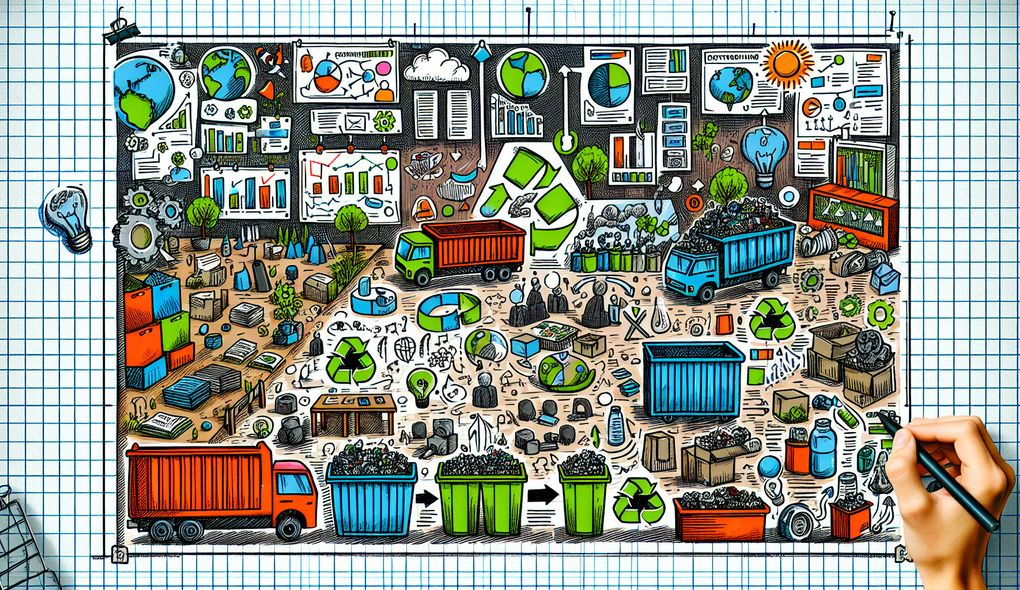Tell us about a time when you conducted data analysis and reporting to inform decision-making.
SENIOR LEVEL

Sample answer to the question:
In my previous role as a Waste Policy Analyst at a local government agency, I conducted data analysis and reporting to inform decision-making on waste management policies. One of the projects I worked on involved analyzing waste composition data collected from various sources, such as waste audits and surveys. I used spreadsheet software to organize and analyze the data, identifying trends and patterns in waste generation and composition. Based on this analysis, I prepared a comprehensive report that highlighted the need for enhanced recycling programs and waste reduction strategies. This report was shared with decision-makers and used as the basis for implementing new policies and programs. The data analysis provided valuable insights into the current state of waste management and helped shape more effective strategies for achieving sustainability goals.
Here is a more solid answer:
During my time as a Waste Policy Analyst, I spearheaded a data analysis and reporting project that played a crucial role in shaping waste management policies. I collaborated with a team of researchers to collect and analyze data on waste generation, recycling rates, and landfill capacities. Using statistical software, I conducted in-depth analyses to identify key trends and patterns in waste management practices. This analysis helped identify areas where current policies were falling short and where improvements could be made. I then prepared comprehensive reports with clear data visualizations and actionable recommendations, which were presented to decision-makers and stakeholders. As a result of this analysis and reporting, new policies were implemented to enhance recycling efforts, divert waste from landfills, and promote sustainable waste management practices.
Why is this a more solid answer?
The solid answer expands on the basic answer by providing specific details about the candidate's role, the data analysis process, and the impact of their work. It also touches on the evaluation areas mentioned in the job description, such as data analysis and reporting, policy development, and stakeholder engagement. However, it could benefit from further elaboration on environmental regulations and their influence on the decision-making process.
An example of a exceptional answer:
In my role as a Waste Policy Analyst, I conducted a comprehensive data analysis and reporting project that had a significant impact on decision-making and waste management practices. To start, I collaborated with waste service providers, government agencies, and community groups to gather data on waste generation, recycling rates, and landfill capacities. I then used advanced statistical techniques to analyze the data and identify key areas for improvement. This analysis revealed the need for updated waste management policies to align with new environmental regulations and sustainability goals. I worked closely with stakeholders to develop and implement these policies, ensuring compliance with local, state, and federal regulations. Additionally, I conducted regular audits and reporting to monitor the effectiveness of the new policies and identify areas for further improvement. As a result of these efforts, waste diversion rates increased by 30% within the first year, and new recycling programs were successfully launched, leading to a significant reduction in landfill waste. The success of these initiatives was recognized by industry experts and even received a sustainability award. This experience highlighted the importance of data analysis and reporting in informing decision-making and driving positive change.
Why is this an exceptional answer?
The exceptional answer goes above and beyond by providing specific details on the candidate's collaboration with various stakeholders, the use of advanced statistical techniques, the impact of their work on waste management practices, and the recognition received for their efforts. It also emphasizes the candidate's understanding of environmental regulations and their ability to develop and implement policies that comply with these regulations. The answer effectively addresses all evaluation areas mentioned in the job description.
How to prepare for this question:
- Review your experience conducting data analysis and reporting projects. Think about the specific tasks you performed, the tools and software you used, and the insights and impact your work had.
- Consider how your data analysis and reporting projects align with waste management and environmental sustainability goals. Highlight any key achievements or improvements resulting from your analysis.
- Brush up on your knowledge of local, state, and federal environmental regulations related to waste management. Be prepared to discuss how you ensured compliance with these regulations in your previous work.
- Think about your experience collaborating with diverse stakeholder groups, such as government agencies, waste service providers, and community groups. Reflect on how you engaged and communicated with these stakeholders to gather data and inform decision-making.
- Practice communicating your data analysis and reporting projects clearly and succinctly. Focus on highlighting the key insights and impact of your work in a way that is easy for non-technical audiences to understand.
What are interviewers evaluating with this question?
- Data analysis and reporting
- Policy development
- Environmental regulations
- Stakeholder engagement

